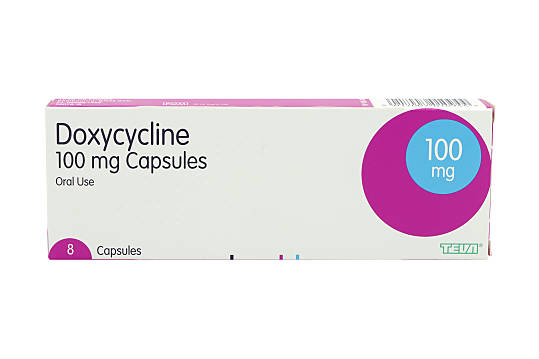Chlamydia Treatment
Order an online consultation and prescription for chlamydia treatment.
Simply fill in a brief questionnaire. One of our doctors will review your order and prescribe a suitable treatment. How to Order
If you or your partner have been diagnosed with chlamydia, you can order a prescription for chlamydia treatment online.
ZAVA offers prescriptions for two treatment options. The recommended treatment is doxycycline which is taken for 7 days. The other treatment is azithromycin, a single dose antibiotic that is more than 95% effective in treating chlamydia.
To place your order, fill in our short medical questionnaire. One of our doctors will check if the medication is suitable for you and issue your prescription to a local pharmacy in Ireland, or you can choose to have your medication delivered directly to your door.
A consultation for chlamydia treatment prescription costs €21.50.
Chlamydia treatments

No results found.
Please check your spelling or try another treatment name.



Chlamydia Treatment
What is chlamydia?
Chlamydia is a common sexually transmitted infection (STI). You get it by having unprotected sex (vaginal, anal or oral), or from sharing sex toys without washing them or covering them with a condom each time they are used. It is caused by a type of bacteria called Chlamydia trachomatis that lives in semen and vaginal fluids.
Chlamydia normally infects the genitals, but it can also infect the rectum, eyes or throat.
Symptoms of chlamydia
Chlamydia can have very few or no symptoms, which makes it hard to tell if you have got it unless you take a test. Some people do present short term symptoms though and symptoms can differ between men and women.
Symptoms of chlamydia in men
- A white discharge from the end of the penis
- Burning sensation when urinating
- Sore testicles
Some men may get mild symptoms that disappear after about 3 days. This does not mean the infection has gone. You can still pass it on, so you need to get treatment.
Symptoms of chlamydia in women
- Needing to urinate repeatedly (can be accompanied by a burning sensation)
- Unusual and excessive vaginal discharge (usually white or yellow)
Short term symptoms appear roughly two weeks after having unprotected sex, but if you do not get any symptoms this does not mean you do not have chlamydia. It is often symptomless. It is always better to do a test to check.
Long term chlamydia symptoms and complications
- Pain/bleeding during sex
- Vaginal discharge
- Sickness or a very high temperature
- Spotting between periods
- Abnormally heavy periods
- Pain in the back or abdomen
- A weighty feeling round the hips
These are very serious and can be linked to complications such as pelvic inflammatory disease. Consult a doctor straight away if you have any of these symptoms.
You can also get chlamydia in your eyes, rectum or throat. If infected semen or vaginal fluid comes into contact with your eyes, you can develop conjunctivitis. If you get an infection in the rectum, it will cause a discharge, along with pain, discomfort and bleeding. It is uncommon to get an infection in the throat and there may not be any symptoms.
What are the risks of untreated chlamydia?
If left untreated, chlamydia can cause very serious health problems. In women this includes pelvic inflammatory disease, which can cause and increased risk of miscarriage.
In men, chlamydia can result in infertility, swollen testicles (orchitis), and reactive arthritis (inflammation of the joints).
Chlamydia treatment options
You can treat chlamydia with a single course of antibiotics. Azithromycin and Doxycycline are the two most prescribed antibiotics to treat chlamydia. Both work in the same way – they prevent the bacteria from reproducing so that your body’s immune system can fight off the infection.
Over 95% of people who take their antibiotics according to the doctor’s instructions find that their treatment successfully gets rid of the chlamydia infection.
The dosage of Azithromycin for most people with chlamydia is four 250mg tablets taken at the same time in one day. The dosage of Doxycycline is usually a longer course - two tablets each day for a week.
Your doctor might suggest a different type of antibiotic if you are pregnant, breastfeeding or if you seem to have had chlamydia for a long time. You must complete the course of antibiotics, even if your symptoms seem to have cleared up.
Getting tested for chlamydia
If you have symptoms, get tested for chlamydia straight away. You can take the test anytime, but if it is less than two weeks since you had unprotected sex, your doctor might suggest you do another test after those two weeks. This is because the test sometimes does not pick-up chlamydia in its early stages. In general, the test is accurate for more than nine out of ten people.
Often, you do not need to be physically examined to get tested for chlamydia. The test can be either a urine test or a swab test. The swab test is where a cotton bud is rubbed gently over the area where you might have chlamydia to collect some cells. This sample can then be tested for the chlamydia bacteria.
Men usually get tested with a urine sample. Very occasionally the doctor might suggest swabbing the top of the urethra (the tube you pass urine through), but normally this is not necessary. Women may be tested with a urine sample, but often the swab test is favoured.
If you have had unprotected oral or anal sex, the doctor might suggest swabbing your rectum or throat. Likewise, if you are showing symptoms in your eyes, the doctor might suggest swabbing your eyelid.
If you have a very high chance of having chlamydia (for example, if your partner has got it and you have been having unprotected sex) your doctor may start you on a course of treatment before your test results come back.
Can I still pass on chlamydia during treatment?
Yes, you can still pass on chlamydia even if you are being treated – this is because the treatment has not killed off enough of the bacteria to make you non-contagious.
It is not advisable to have sex, even with a condom, until you finish your treatment. If your partner also has chlamydia, you should not have sex until you have both finished the treatment. Otherwise, you risk catching/passing on the infection again.
All sexual contact including with a condom should be avoided during treatment.
How can I get the most out of my chlamydia treatment?
You should take the tablets exactly as they have been prescribed – if you are on a seven-day course, try to take them around the same time every day. If you think you are likely to forget to take tablets twice a day for a week, you could ask for a one-day course of treatment.
Avoid sex – to look after yourself, you should not have sex, even with a condom, until you have finished the chlamydia treatment. This increases the chance of you passing it on or catching it again. Try to eat normally and drink lots of fluids to help your body fight off the infection.
Alcohol – do not drink alcohol during your treatment as this reduces the effectiveness of the treatment.
Improving any symptoms – most people do not notice any symptoms when they get chlamydia. However, you may notice some pain (especially when urinating) or abnormal bleeding (if you are a woman). You can take over-the-counter painkillers such as paracetamol or Ibuprofen if the pain bothers you.
Under 25 years old – if you need chlamydia treatment and are under the age of 25 you should repeat the test 3 months after your treatment.
When to get more help – if you take the full course of antibiotics, the chlamydia infection should clear up after a week. Go to a sexual health clinic or seek advice from a nurse or doctor if any of these things happen:
- You have sex, even with a condom, during your chlamydia treatment
- You miss a tablet or are sick or have diarrhoea after a tablet
- You were pregnant when you started treatment
- The symptoms of chlamydia did not stop a week after your treatment
- You have a fever or severe tummy pain
- You are a man and have discharge from your back passage

Dr Kathryn Basford is an IMC and GMC registered GP who works with our Irish team here at ZAVA. She graduated from the University of Manchester and completed her GP training at Whipps Cross Hospital in London.
Meet our doctorsLast reviewed: 08 Jan 2021




